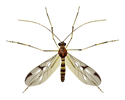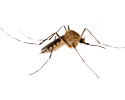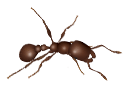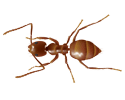Alternative Mosquito Repellants
The first mosquito bite of the year brings about a conflicting inner monologue. On one hand, you associate a mosquito bite with the coming of summer, meaning boating on the lake and an excuse to wear patriotic clothing. On the other, it means having to deal with the endless mosquito nonsense yet again. Seriously, it’s virtually impossible to enjoy an evening Old Fashioned on your deck without at least a dozen of those things devouring your legs.
Even when you apply bug spray, you never seem to cover your whole body and get eaten alive regardless. Your kids especially detest the whole experience. You hose them down with repellant while they are imagining it akin to a prisoner being deloused.
Now, you look for mosquito repelling alternatives. For once, you would like some respite when being outdoors for more than 30 seconds. So today, we evaluate a few mosquito resisting systems you may encounter and the respective efficacy of each.
Sound Emitting Devices
Electronic mosquito repellents (EMRs) emit sonic waves in order to subdue the insect. The sound mimics the pitch and frequency of the male mosquito’s flight noise, which should prevent the blood-sucking female from entering the noise radius. Devices of this nature can be found in a variety of formats, such as keychain bracelets or even an iPhone app. With the sound lowered to be inaudible for human ears, the theory seems ingenious for your next barbecue.
Scientists, however, have repeatedly found that these methods are simply incapable of deterring mosquitos to any degree. In fact, one particular study proved that an electronic “repellant” actually attracted more attention from mosquitos, and the biting rate increased almost 40% among subjects using the device, compared to the time spent not using the EMR.
Dryer Sheets
Female mosquitos pursue human blood specifically for its proteins in order to produce eggs. Accordingly, they have evolved over time to recognize the human scent, from perspiration to the perfumes we use. Most topical applications include a pungent odor for this exact reason, in order to “mask” your body’s natural odor.
You’re probably gagging at the thought of having to apply bug spray again this spring and summer. Thankfully, a more fragrant option exists: dryer sheets! Yes, as comical as it sounds, rubbing a dry sheet on your skin has actual scientific legitimacy in preventing the blood-sucking creatures from attacking your skin. A group of Kansas State University entomologists discovered that two primary chemicals in Bounce’s fabric softeners, linalool and beta-citronellol, had a strong correlation with warding off certain mosquito species. Now, you can remain itch-free while still smelling great.
CO2 Chemical Releases
Much like one’s bodily scent, female mosquitoes are also attracted to the CO2 humans exhale. Mosquitoes are acutely aware of much higher carbon-dioxide concentrations and are drawn to sources that regularly discharge the chemical. Naturally, the shrewd American entrepreneur devised a machine that could imitate human CO2 output to draw mosquitos into a killing deathtrap. The concept is genius, but the execution? Not so much.
Scholars reviewing these products have shown that the CO2 emitting agents cannot realistically improve the mosquito situation of homeowners. While they do attract and kill the insects, the product can’t ensure a mosquito-free radius surrounding your deck or porch. More than a few test results indicate some models don’t produce the carbon dioxide levels its advertisements claim.
If you’re reading to take the next step, contact Holder’s today for a mosquito management solution.
Alternative Mosquito Repellants Serving
Houston
Beaumont | Conroe | Spring | Pasadena | The Woodlands | Richmond | Galveston
Baytown | Bryan | Cleveland | College Station | Cypress | Pearland | Sugar Land
Home » Alternative Mosquito Repellants






